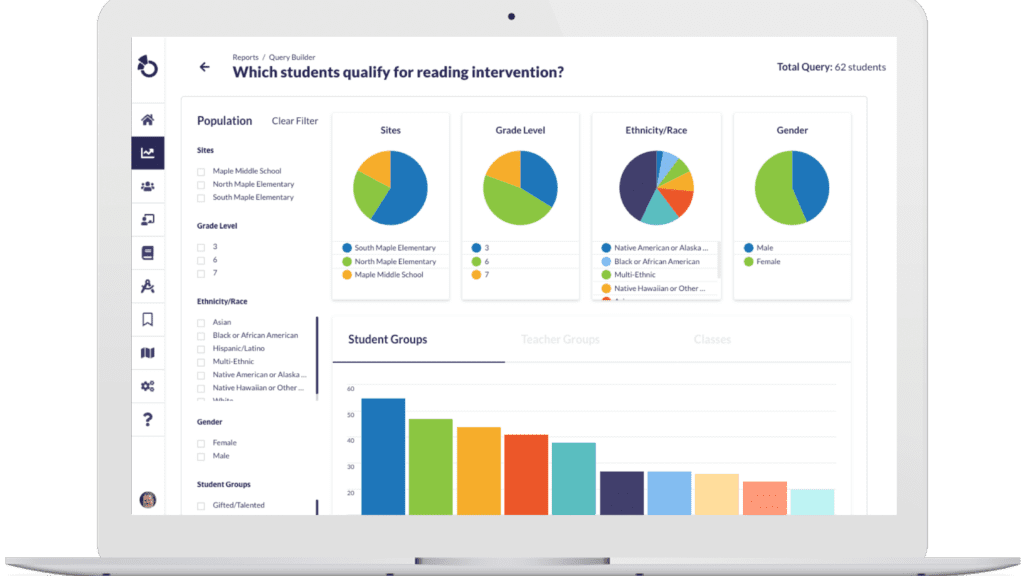Originally published in January 2017 on builtinchicago.com
Modern students are tracked throughout their educational careers, creating a treasure-trove of data that can be mined for insights. But much of that data is siloed, available just to a single teacher for a single class. West Loop-based Otus helps connect student data across classes to give teachers, administrators and other stakeholders better insights into how individual students and entire cohorts are performing. And the system tracks more than just grades — attendance records, participation and more are all available to help educators make better choices. “Schools are data rich, information poor,” COO Keith Westman said, quoting a professor of his from Loyola. “They have more data than they know what to do with, but it's hard for them to tell a story with that data.”
For example, a teacher might see that a certain group of students did poorly on a quiz. Without external data, the teacher may think that section was taught poorly or that those students just weren’t doing well. But with Otus, the teacher would be able to see that those students had a big test the same day and may have been studying for that instead of doing the reading for the quiz. The data is also useful at a higher level, helping administrators spot areas where students are struggling and offering a more holistic overview of entire schools day by day, instead of just when teachers get reviewed. Otus seems well-equipped to handle the problems educators are facing. Two-thirds of its 26 employees have a background in education, from teachers to the former superintendent of the Morton Grove School District. In fact, the company was founded when two teachers realized the iPads their classes were given caused more problems than they solved. “They assumed now that they had iPads, learning is going to be fun for the kids and it’s going to be more efficient for me,” Westman said. “But what happened was they spent so much time logging into systems, getting students to the right program, using this tool to track behavior and this tool to track participation. Their problem was that this was too much, actually making life more complicated.” Otus was founded in 2013 and has so far only taken funding from Delaware Street Capital’s Andy Bluhm. It’s now in use at about 40 school systems across the country and is adding about two districts per week since going to market in September 2016.
Related Resources
Request a demo!
See exactly how Otus can help your school accelerate student growth and improve student outcomes – all while saving educators time.





